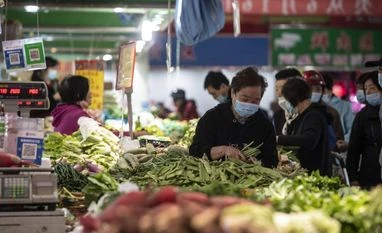The core retail inflation, which excludes food and fuel items, has been sticky at elevated levels at least since January 2021. It remained high at over 6 per cent throughout FY23 till February, except for May. In fact, it also stood at a high 5.5 per cent in May, though less than the upper tolerance level for the Reserve Bank of India (RBI) for overall inflation at six per cent.
The core inflation remained elevated even during the third quarter of the current financial year despite the demand in the economy growing by just two per cent even in the festival season. It remained high for the next two months for which the latest data is available.
This could be due to supply shocks in the economy. But the supply situation has significantly eased now.
Many believe that it may be due to the decimation of the medium, small and micro enterprises (MSME) sector by big players since Covid 19-induced lockdowns in 2020. Big firms are dictating prices, they say.
For instance, former RBI Deputy Governor Viral Acharya wrote in a paper that the top five Indian conglomerates' dominance at the expense of smaller local firms could be responsible for keeping core inflation persistently at a high level. The five conglomerates include Reliance group, Tata group, Aditya Birla group, Adani group and Bharti Telecom.
The government's move to raise customs tariff has shielded these conglomerates from competition from foreign firms, he said.
In the US too, some economists believe that firms are using the excuse of supply disruptions, earlier due to Covid-19 and now the Russia-Ukraine war, to increase prices, calling it 'excuseflation'. However, demand has been rising in the US with sub-3.5 per cent unemployment and average hourly earnings growth running over four per cent annually. So, there is at least a demand pull reason for high inflation at over six per cent, well above the Federal Reserve's target of two per cent.
Former chief statistician Pronab Sen said that the pricing power has been concentrated with these organised corporates as they have benefitted at the expense of MSMEs since the pandemic.
He, however, believed that Acharya has narrowed it down to just five conglomerates which may not explain high core inflation.
"Items in core inflation are much more than produced by five Indian conglomerates," he said.
In this situation, he found the role of monetary policy to be limited in controlling core inflation as high policy rates squeeze demand which is already low.
The monetary policy committee sprang a surprise by keeping the repo rate intact at its April policy meeting even as it started to focus on inflation.
Anil Sood, a professor and a co-founder of the Institute for Advanced Studies in Complex Choices, agreed with Acharya but suggested that the influence of large businesses on inflation goes beyond the corporates that he has named as the contributors.
"I would include the government, consumer products companies and all other firms who enjoy greater pricing power in their markets," he said.
He pointed out that financial investors and speculators are largely causing global and domestic commodity price inflation. Its impact on core inflation over time should be discussed, he argued.
"Some of the influential investment bankers have been selling the narrative of commodity super-cycle, even when we know that the global growth may not even exceed three per cent the next five years. The commodity super-cycle narrative, along with low-interest rates, attracts a lot of financial capital that causes price instability and inflation globally and in India," he said to prove his point.
He said India is impacted more than many other nations, as it is a commodity importer and the rupee is expected to depreciate all the time.
There are many who do not believe in large corporations causing high core inflation.
Bank of Baroda chief economist Madan Sabnavis said many big players are not raising prices as we see telecom or even airline companies have not done so. "Airlines are still making losses. Before concluding misuse of monopoly power, one needs to examine price increase and profits," he argued.
He said companies are in the process of passing on higher input costs incurred since 2021-22.
"This holds for manufacturing and services. Input costs like raw materials, logistics, packing power, labour have gone up and companies absorbed costs. There have been falling profits in the first nine months (of the current financial year)," he pointed out.
Icra chief economist Aditi Nayar said one-time sharp increases in prices of some services after the pandemic is keeping the core inflation high. "Prices of services tend to be sticky," she said.
In fact, MPC also stated at its April policy that the lagged pass-through of input costs could keep core inflation elevated.













)
